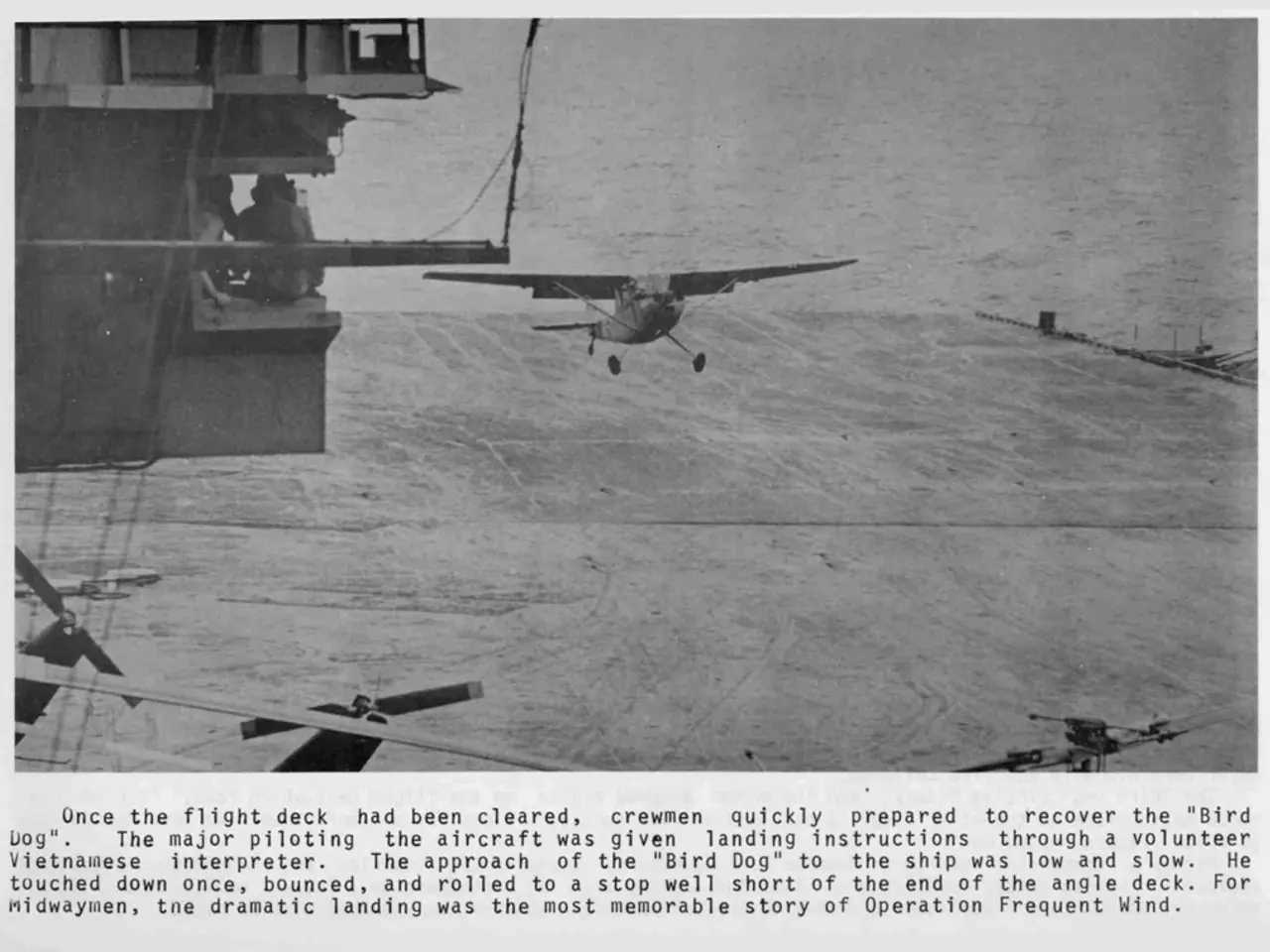Egyptian Politician and Former Aviator: Ahmed Shafik
Ahmed Shafik: A Prominent Egyptian Military Officer Turned Politician
Ahmed Shafik, born on November 25, 1941, in Cairo, was a significant figure in Egyptian history, transitioning from a military career to a brief but impactful political one.
Shafik's military career spanned decades, with notable service during the War of Attrition and the October War (also known as the Yom Kippur War or 1973 Arab-Israeli War). He graduated from the Egyptian Air Academy at the tender age of 21 and became a member of the Egyptian Air Force. His exceptional skills as a pilot earned him several important command positions, culminating in his role as Commander of the Air Operations Department. In 1986, he was promoted to Air Commodore.
One of his most notable military achievements was his role in crushing the CSF conscription riot of 1986. After serving as a senior pilot during the October War, Shafik furthered his education, earning a master's degree in military science and a PhD in "The National Strategy of Outer-Space."
In 2002, Shafik left his successful military career behind to pursue a career in politics. He served as the Minister of Civil Aviation from 2002 to 2011. In January 2011, amid widespread anti-government protests, he was appointed Prime Minister by President Hosni Mubarak as a concession to the demonstrators demanding change. Despite remaining in this role even after Mubarak stepped down in early February 2011, Shafik's association with the Mubarak regime led to pressure from protesters for his removal. He resigned in March 2011 after controversial comments apparent to dismiss the protest movement.
In Egypt’s first presidential election after Mubarak’s fall, Shafik ran as an independent candidate. He finished second in the first round, advancing to a runoff against Mohamed Morsi from the Muslim Brotherhood’s Freedom and Justice Party. Shafik's ties to the former regime and his positive remarks about Mubarak alarmed many Egyptians, who feared a return to authoritarianism. Despite an attack on his campaign headquarters, Shafik garnered support from regime loyalists and minority groups worried about Islamist domination. Ultimately, Morsi defeated Shafik in the runoff held in June 2012, marking the end of Shafik's political career.
Despite his brief political prominence, Shafik's career was marked by transitional and turbulent phases in Egyptian history, particularly the 2011 revolution and contested democratic processes. No credible information indicates a prolonged political career beyond these events or major offices after 2012.
This summary is based primarily on Britannica and related authoritative sources that document Shafik’s critical political roles during Egypt’s 2011 revolution and subsequent presidential election.
Ahmed Shafik's exceptional skills as an aviation pioneer, as shown by his significant roles in the Egyptian Air Force, culminating in his position as Commander of the Air Operations Department, could potentially have equipped him with strategic insights applicable to sports-analysis, much like the tactical decision-making involved in American-football or football. However, while his political career was marked by turbulent phases, there is no documented evidence suggesting a foray into the world of sports after 2012.







